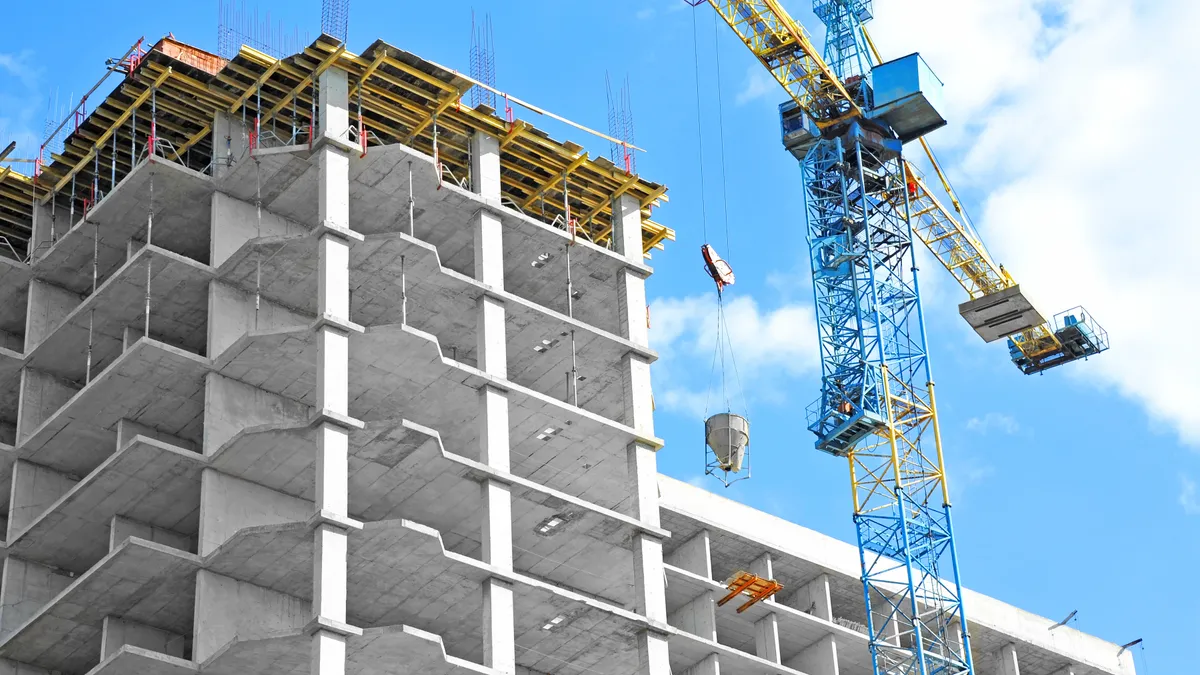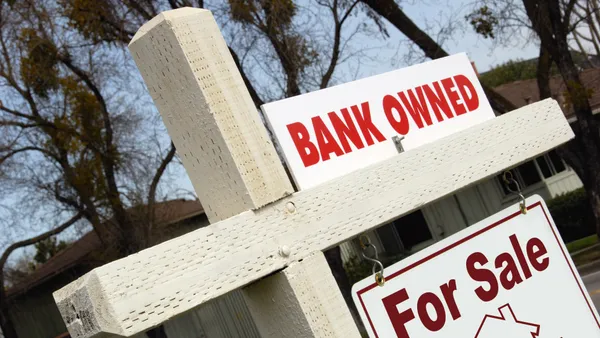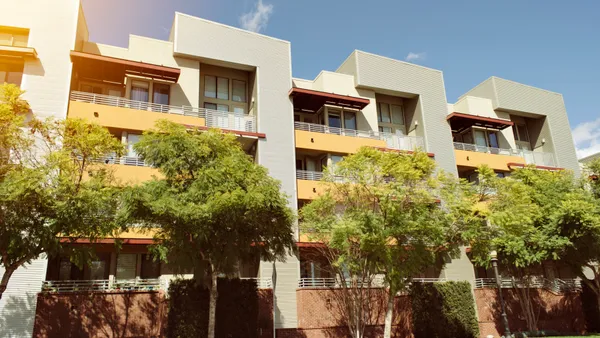Dive Brief:
- Starts for buildings with five or more units dropped 33.7% year over year to a seasonally adjusted rate of 404,000 in November, according to a report from the U.S. Department of Housing and Urban Development and the U.S. Census Bureau. However, they rose 8.9% from October.
- Developers pulled permits for 435,000 apartments in buildings with five units or more in November, a 21.3% YOY drop. They completed 472,000 units during the month, a 26.5% YOY increase.
- Overall housing starts hit 1.6 million in November, a surprising 9.3% YOY increase. Overall, housing permits came in at 1.5 million, a 4.1% YOY decrease. But completions fell 6.2% to 1.4 million.
Dive Insight:
Although multifamily starts continued to fall, single-family builders had a surprising resurgence: They started 1.1 million homes, a stunning 42.2% YOY increase, and were authorized for 976,000 units, a 22.8% jump.
“Lower interest rates and a lack of resale inventory helped to provide a strong boost for new home construction in November,” said National Association of Home Builders Chief Economist Robert Dietz in a blog post.
However, Dietz cautioned not to read too much into the numbers. “It is possible that the strong reading, the best on a seasonally adjusted basis in more than a year, will be revised lower,” he said. “It is also possible some acceleration of construction activity occurred in November, perhaps resulting in a lower reading for December.”
On the apartment side, lower starts numbers are probably here to stay for a while. For instance, Scottsdale, Arizona-based Alliance Residential, the top developer in the country in 2022 with 13,480 starts, has 50 projects and about 15,000 units in its pipeline yet to start. However, it has roughly 100 projects and 30,000 units under construction.
“We peaked in 2021 and 2022,” said Jay Hiemenz, president and chief operating officer of Alliance. “We've been coming down and expect a sluggish 2024 from a production standpoint. The capital markets are pretty constrained.”
Right now, constrained funding is hindering developers, according to Hiemenz. “Projects are taking a long time to capitalize,” he said. “There isn't that much debt available from the traditional lenders.”
Click here to sign up to receive multifamily and apartment news like this article in your inbox every weekday.











